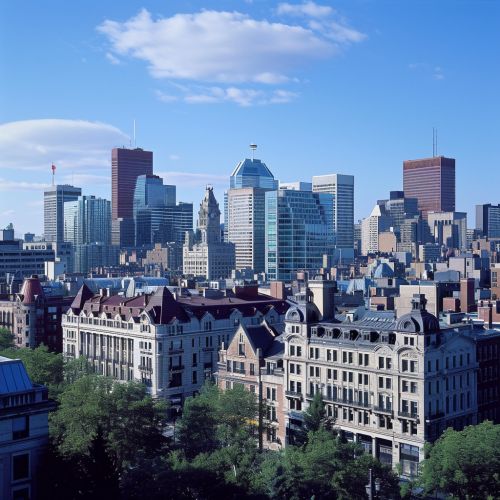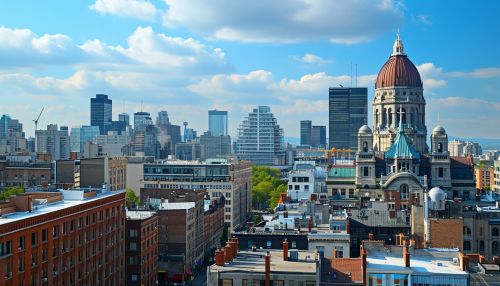Montreal
Geography
Montreal is located in the southwest of the province of Quebec, Canada. The city covers an area of 431.5 square kilometers on the Island of Montreal, at the confluence of the Saint Lawrence River and the Ottawa River. The city's name is derived from Mount Royal, a triple-peaked hill located in the heart of the city.


History
Montreal's history dates back to around 4,000 years ago when First Nations people settled in the area. The city was officially founded on May 17, 1642, by French colonists from the Société Notre-Dame de Montréal. The city's growth and development were influenced by its strategic location as a fur trading post, its status as a colonial administrative center, and later, the industrialization and expansion of the Canadian railway system.
Demographics
As of 2021, Montreal is the most populous municipality in Quebec and the second-most populous city in Canada, with a population of over 1.7 million people. The city is known for its cultural diversity, with over 200 ethnic groups reported as a mother tongue in the 2016 Canadian Census. The city's official language is French, spoken by 49.8% of the population.
Economy
Montreal's economy is the second largest in Canada and is characterized by a broad mix of industries. The city is a centre for technology, design, culture, finance, commerce, and world affairs. It is also known for its aerospace, pharmaceuticals, and software industries. The Port of Montreal is one of the largest inland ports in the world, handling over 26 million tonnes of cargo annually.
Culture
Montreal is renowned for its vibrant culture, which is reflected in its diverse culinary scene, dynamic arts community, and numerous cultural festivals. The city is home to a number of prestigious cultural institutions, including the Montreal Museum of Fine Arts, the Montreal Symphony Orchestra, and the National Film Board of Canada.
Education
Montreal is a major centre for higher education. The city is home to four universities, including McGill University and the Université de Montréal, which are consistently ranked among the top universities in the world. The city also has the highest concentration of post-secondary students of all major cities in North America.
Sports
Montreal has a rich sports culture, with a history of hosting numerous international sporting events, including the 1976 Summer Olympics. The city is home to several professional sports teams, including the Montreal Canadiens of the National Hockey League and the Montreal Impact of Major League Soccer.
